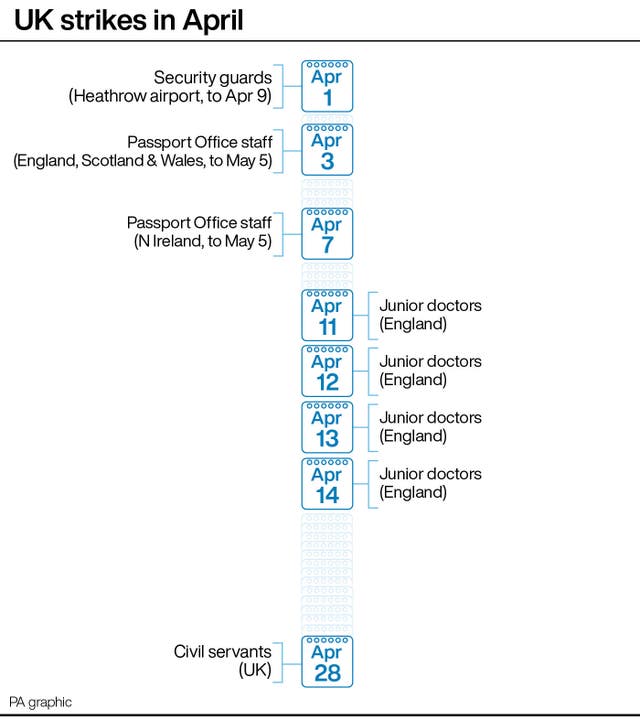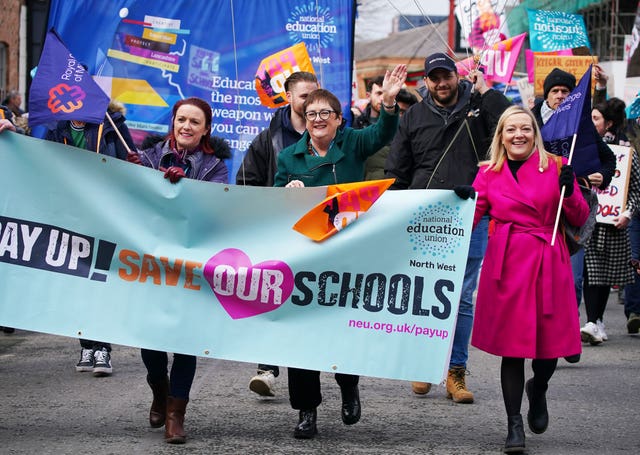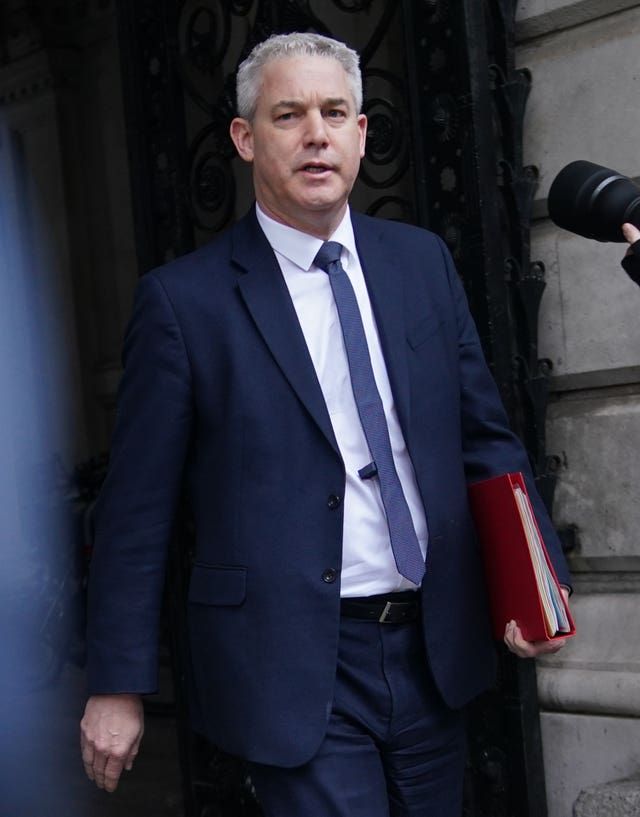A fresh round of teachers’ strikes could disrupt exams after their union recommended rejecting an “insulting” pay offer from the Government.
National Education Union (NEU) co-leader Mary Bousted has said teachers do not want to take industrial action on exam days but refused to rule it out if members agree to turn down the pay offer.
Following weeks of talks, the Government offered teachers what the NEU says amounts to a £1,000 one-off cash payment for the present school year and a 4.3% consolidated pay rise for most teachers the following year.
The NEU, which is the largest teaching union, has recommended that members vote to reject this.
Ms Bousted told BBC Radio 4’s Today programme: “Our executive committee looked carefully at the offer and decided it was really insulting and that the union had to offer advice to members, who will either take that advice or ignore us.”
Asked whether strikes could disrupt exams, she said: “We really hope that that doesn’t take place.
“What we hope is that, if the members do reject the offer, we want to go back to the Government and say ‘You have to do better’, reopen negotiations, and let’s see if we can get an offer that members will find respectable.”
Asked again about whether strikes will disrupt exams, Ms Bousted said: “We will plan more strike dates. We don’t want to disrupt exams and we will try to ensure that we do reopen negotiations.”
Pressed on the issue a third time, she said: “We have conference next week, and conference will decide the plan of action, but no teacher wants to disrupt exam dates at all, so it’s up to the Government.”

The NEU is also holding an election for its next general secretary, with members to vote for either Daniel Kebede or Niamh Sweeney.
Ms Bousted also clashed with Today presenter Nick Robinson when he asked her whether she considers Mr Kebede to be an “extremist”, who would plan strikes on exam days.
“I think that’s an outrageous slur,” she said. “We’re not getting into personalities four days before an election.
“I wouldn’t describe either of my successors as an extremist.
“General secretaries don’t decide policy for the union – they have an executive, and they have a membership.
“I think this is quite outrageous, actually. You’re bringing what is a really serious issue about the future of teachers, about the current state of teachers in the classroom, down to personalities.
“I think that is really base, it demeans the programme. I’m very sorry you’ve done that.”

The Government has described its offer to teachers as “fair and reasonable”.
A Department for Education (DfE) spokesman said: “The Government and the education unions – NAHT, ASCL, NEU and NASUWT – have engaged in intensive discussions over the last 10 days.
“The Government has put forward a fair and reasonable offer, backed with funding for schools.
“The offer provides an average 4.5% pay rise for next year, puts £1,000 into the pockets of teachers as a one-off payment for this year, and commits to reducing workload by five hours each week.
“This is a good deal for teachers that acknowledges their hard work and dedication.”
Smaller teaching unions, including the NASUWT and the Association of School and College Leaders (ASCL), have said they will ask for feedback from members on the pay offer.
The headteachers’ union, NAHT, said its national executive committee will consider the details before deciding its next steps.
Meanwhile, nurses, ambulance crews, physiotherapists and other non-medical NHS staff are also voting on whether to accept a pay offer made by the Department for Health and Social Care (DHSC).

Health Secretary Steve Barclay described this as a “hugely positive step” after “weeks of constructive talks”.
“This fair and balanced offer recognises the vital role these hardworking NHS staff play, while protecting our commitment to halve inflation – and I urge union members to accept our offer,” he said.
“I’m working with the Treasury to ensure my department has the money it needs to fully fund this pay offer, which will include additional funding and reprioritising existing budgets.
“This is on top of the existing funding we have already made available for a pay increase of up to 3.5% in 2023-24.
“I want to be clear – there will be no impact to frontline services or quality of care as a result of this offer.”
However, the British Medical Association (BMA) has said no “credible offer” has been made for junior doctors, who will be staging a 96-hour walkout from April 11.
Civil servants, driving examiners and Passport Office staff will also continue to strike throughout April over pay and conditions.
The Rail, Maritime and Transport (RMT) union has suspended strikes which had been scheduled for March 30 and April 1 to engage in further talks with the Rail Delivery Group.




Comments: Our rules
We want our comments to be a lively and valuable part of our community - a place where readers can debate and engage with the most important local issues. The ability to comment on our stories is a privilege, not a right, however, and that privilege may be withdrawn if it is abused or misused.
Please report any comments that break our rules.
Read the rules here